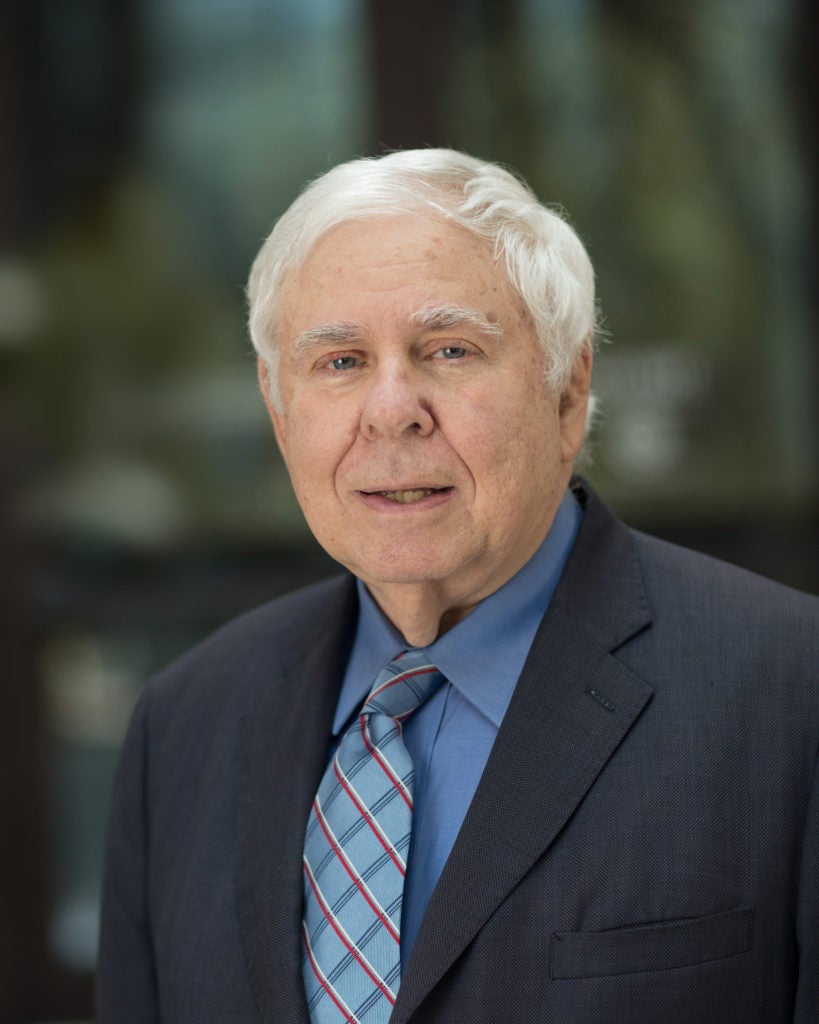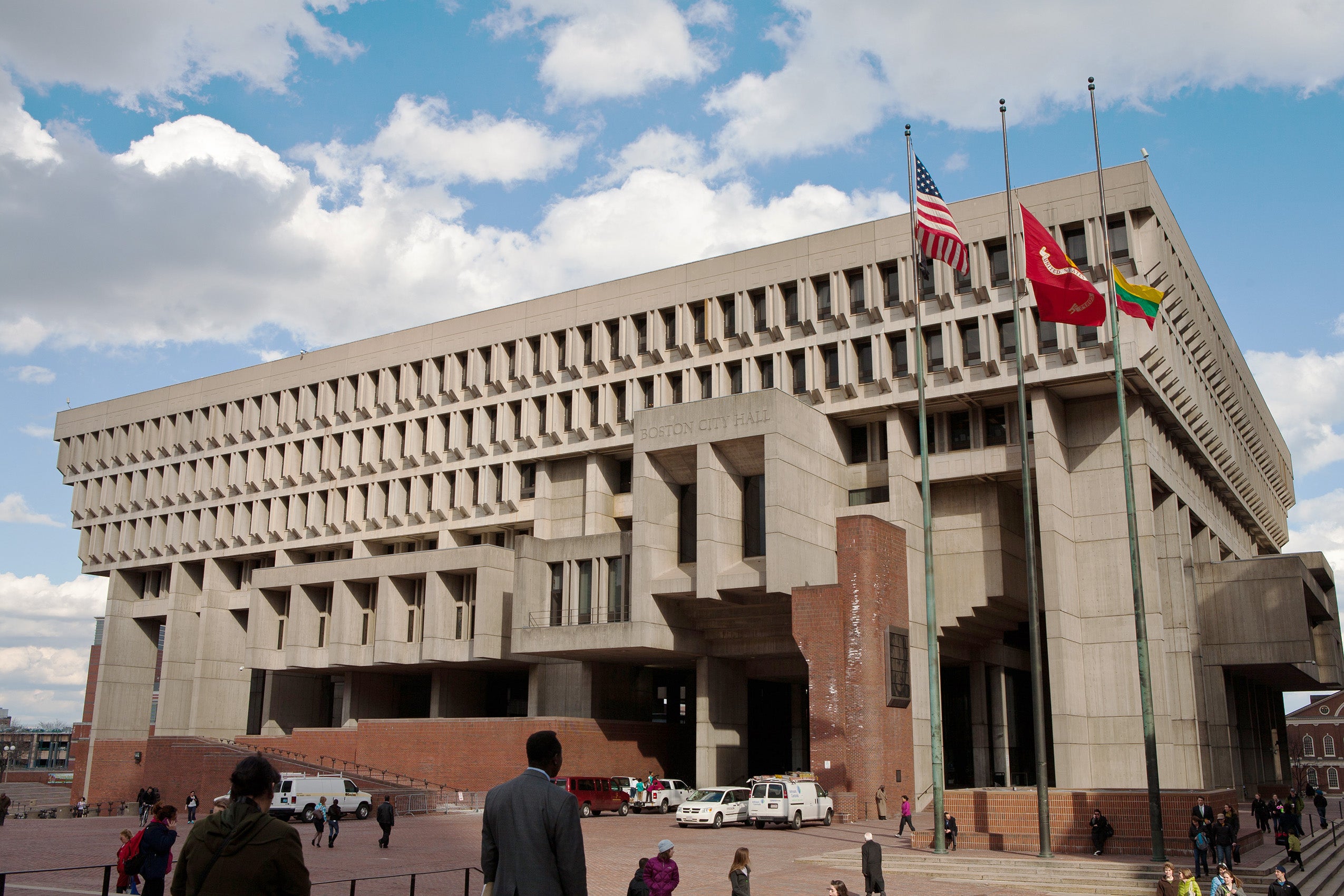Can Boston deny a religious group permission to fly a Christian flag on a city hall flagpole it labeled a “public forum” for “all applicants”? The United States Supreme Court will hear arguments on both sides of this question on January 18.
Over the course of 12 years, Boston approved all 284 applications to fly privately-owned flags on one of three poles situated on the plaza outside city hall, facing the Government Center MBTA station. But when Harold Shurtleff applied in 2017 to raise what he identified as a “Christian flag,” city officials said no, prompting him to sue. Shurtleff is the founder of an organization called Camp Constitution, which is dedicated to “enhanc[ing] understanding of our Judeo-Christian moral heritage, our American heritage of courage and ingenuity, including the genius of our United States Constitution, and the application of free enterprise.” After losing in both the federal district court and First Circuit Court of Appeals, Shurtleff took his case to the Supreme Court.
Constitutional expert and author of “Written in Stone: Public Monuments in Changing Societies,” Sanford Levinson says that Shurtleff may have more luck this time. Levinson, a longtime professor at the University of Texas Law School and a regular visiting professor at Harvard Law, argues that the Court will likely overturn Boston’s decision, and that this is just another entry in the chronicle of its involvement in the ongoing culture wars.
Harvard Law Today: What strikes you most about this case?
Sanford Levinson: I often describe myself as caught between being a lawyer and a political scientist, and I have to say that the principal questions I have about this case have much more to do with political science than law. I really find it hard to understand why Boston chose to fight this in the first place. It seems to me that the case is almost certainly going to be decided against Boston. And it would not shock me if it’s 9-0. And depending on who writes the opinion — for instance, if [Chief Justice John] Roberts assigns it to [Justice] Samuel Alito — it could be full of language about what some conservatives view as the awful history of how secular liberals have treated religion.
HLT: What issues will the Court need to decide?
Levinson: The case is in a certain sense a law professor’s dream hypothetical, because it raises a bunch of interesting questions, including, for example, the fact that the Boston website describes the flagpole as a public forum. So, then you get into the question of what a public forum is and whether there can be any constraints based on viewpoint. The city has since tried to walk that back in interesting ways. But it seems to me that, given that several hundred flags have been flown without any apparent question, Boston’s lawyers, when talking in private to the mayor or to the members of the city council, likely said that this is going to be very hard case to win.
HLT: If it is that challenging, why do you think Boston choose to litigate it in the first place?
Levinson: I can imagine — and I have no evidence for this — a mayor or a member of a city council saying, “Okay, we’ll take the loss in court because then we can blame it on the federal judiciary for running up this Christian flag on a city flagpole, rather than taking responsibility ourselves.” Shortly after I came to the University of Texas, I litigated a case for the ACLU that involved the rights of the Ku Klux Klan to march down Austin public streets. Needless to say, we won the case. And even in the 1980s, the question was why the city of Austin chose to litigate. If I had been their lawyer, I would have told them in private that it was a certain loser. The answer, I suspect, was that deflecting responsibility onto the judiciary was politically useful. So, the mayor didn’t have to take responsibility for allowing the Klan to march.
In the Boston case, I can imagine in private somebody saying, “Look, there will be a lot of people who will be upset if a Christian flag flies on a city flagpole. Let’s say no, and let the courts handle it.” And then, of course, Boston won its case in the federal district court. It’s like the dog that captures the bus. What do you do next? Having won the case, they had to defend it when it was appealed to the First Circuit. And having won again in that venue — to my mild surprise — they now have to argue it before the Supreme Court.

HLT: Why do you think the Supreme Court agreed to take this case?
Levinson: This particular case, I think, is of little practical importance. But it is just another example of the Supreme Court getting involved in the culture wars. One might have thought that six of the nine justices would say, “No. Maybe the First Circuit got it wrong, but this is really a trivial case of no genuine national importance, because it can so easily be limited to its extraordinarily peculiar facts — that a city has three flag poles, and treats one as a public forum, and arbitrarily draws the line at the ‘Christian flag’ — but we’ve got more important things to do with our time than to correct mistakes by lower courts.”
One of the first things you learn in the federal courts course in law school is that the function of the Supreme Court is not to correct legal errors from below, but to take cases that are of genuine national importance, and this case is not of genuine national importance. As a political scientist, I would be astonished if the four votes for cert [to hear the case] — or maybe I should say the first four votes for cert — didn’t come from [Justices] Alito, [Clarence] Thomas, [Neil] Gorsuch, and [Brett] Kavanaugh. I find it hard to believe that [Chief Justice] Roberts thinks this is a case of genuine national importance. But of course, all you need is four votes to get the grant. So, I think that it’s a politically tone-deaf decision by the First Circuit that is just red meat for the religious conservatives who now dominate the Supreme Court. It’s an interesting moment in the ongoing culture wars, but will have almost no practical legal importance.
HLT: If you are correct, once Boston inadvertently won in the lower courts, should the city have pulled out to avoid giving the Court an opportunity to make new law in this area?
Levinson: A few years back, a case came out of New Jersey [Piscataway School Board v. Taxman] challenging affirmative action, and there was huge fear that the Supreme Court would use it as a vehicle for ending that practice. So, a settlement was arranged before the case was heard that mooted it. The real aim of the liberal litigants was just keeping it out of the Supreme Court by any means necessary. So, I think that litigants are always sensitive, or ought to be sensitive, to implications of winning cases as well as losing cases. In the case of Boston, the implication of winning the case in the district and circuit courts is to give the Supreme Court the opportunity to underscore a perception that political liberals are hostile to religion. And now, in effect, there is nothing they can likely do to stop it, unless a liberal justice also votes against Boston and the chief justice assigns them the task of drafting the opinion, instead of [Justice] Alito, for instance. What if Boston simply sent a letter, even at this stage, to the petitioners saying they were reserving next Tuesday for flying the Christian flag? I don’t know, but it is likely too late to change the outcome.
HLT: What is Boston’s best defense?
Levinson: The only real argument, ultimately, that the city might make is that the Establishment Clause prevents them from giving access to the Christian flag. I don’t think that is a stupid argument at all. And Justice [John Paul] Stevens, no doubt would have accepted it. And I think Justice [David] Souter probably would have accepted it. But today, the Establishment Clause doctrine is in sheer and absolute chaos. Nobody can pretend that there’s really a coherent notion of doctrine under the Establishment Clause. And in this particular circumstance, everything turns on whether the Christian flag would be attributed to the city of Boston as expressing the official view of the city of Boston. But then you come up against the fact that so many other flags have been flown on that flagpole. Were we supposed to believe that the city of Boston was endorsing the systematic oppression of human rights in both China and Cuba when they flew those flags? To put it mildly, it seems implausible.
HLT: Are there any recent precedents the Court will need to examine?
Levinson: The court will undoubtedly feel some need to talk about is the Texas license plate case [Walker v. Texas Division, Sons of Confederate Veterans, in which the Court upheld Texas’ denial of a request to create a specialty license plate featuring the Confederate battle flag, saying it constituted government speech]. But that decision that was almost completely ad hoc, because one had to figure out why the Confederate flag was attributed to the state of Texas as official speech, whereas other license plates that said, “Go Oklahoma,” or “Play Golf,” or a number of the other actual examples, weren’t attributable to the state of Texas.
HLT: What is Boston’s recourse if they lose this case?
Levinson: If the city loses, which I think it will, and is still determined not to fly a Christian flag, Boston could solve this by simply getting rid of this odd practice that of flying flags on a pole at city hall.
HLT: What do you make of the fact that the Biden administration filed an amicus brief siding against Boston?
Levinson: I find it very interesting to see how many amicus briefs there are generally. And I find it absolutely fascinating that the US has come in on the side of the petitioners because it seems to me that the Biden administration realizes that Boston winning this case would be a political disaster. The last thing in the world that Joe Biden wants to do is to reinforce a perception that political liberals are anti-religious. So, as a political scientist, I would be extremely interested in the behind-the-door conversations administration officials had about intervening. I think the decision by the United States to intervene on behalf of the petitioners was politically sagacious.
